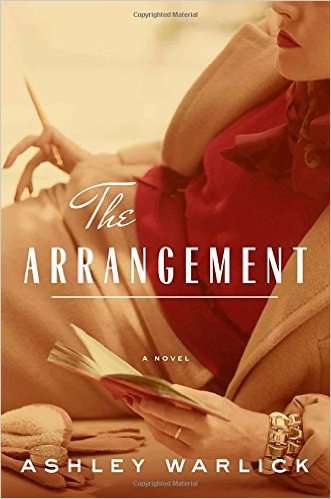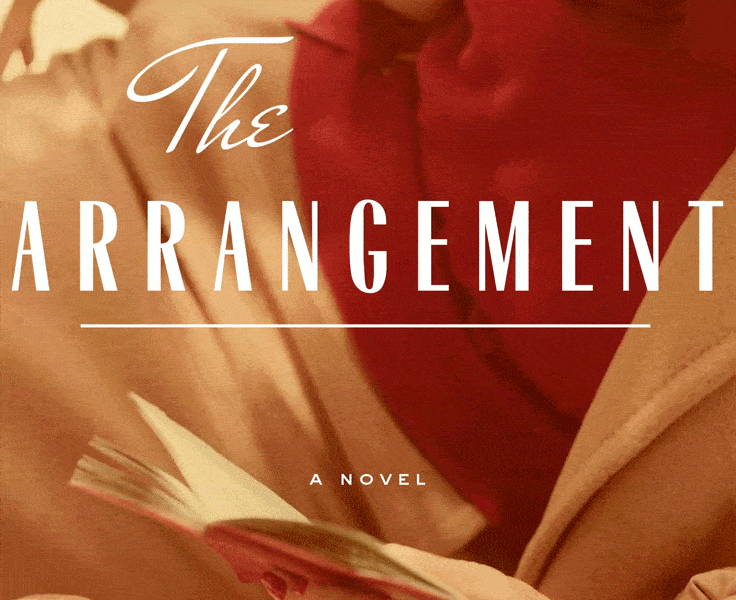The Arrangement by Ashley Warlick
Preeminent food writer M.F.K. Fisher once wrote: “It seems to me that our three basic needs, for food and security and love, are so mixed and mingled and entwined that we cannot straightly think of one without the others.”
Novelist Ashley Warlick gets to the heart of Fisher’s fervent beliefs in The Arrangement (Viking; February 9, 2016), an extraordinary novel that reimagines the love triangle that wreaked havoc on Fisher’s marriage in the 1930s.
You don’t have to be familiar with Mary Frances Kennedy Fisher, or her pen name, or her vast body of work to feel the irresistible pull of this story, the Indie Next pick for February. Fisher destroyed many of the letters and journals in which she documented this dramatic period in her life, so Warlick, like other novelists who reimagine the lives of iconic figures and their inner circles (think Paula McLain’s The Paris Wife), relies on her intuitive creative process to concoct a story that imagines what might have happened during those turbulent years.
 And what’s fact and what’s fiction doesn’t matter in this sex-fueled, melt-in-your-mouth story that opens in Hollywood in 1934. Mary Frances (as she was known to her friends) is out to dinner with her husband Al’s writer friend Tim Parrish. Tim’s married and in love with his wife Gigi, a minor movie studio starlet. After the meal, Mary Frances follows Tim, boldly enters his home and seduces him. What follows are two fascinating “arrangements.”
And what’s fact and what’s fiction doesn’t matter in this sex-fueled, melt-in-your-mouth story that opens in Hollywood in 1934. Mary Frances (as she was known to her friends) is out to dinner with her husband Al’s writer friend Tim Parrish. Tim’s married and in love with his wife Gigi, a minor movie studio starlet. After the meal, Mary Frances follows Tim, boldly enters his home and seduces him. What follows are two fascinating “arrangements.”
The first takes place when Gigi falls in love with someone else and wants a divorce. To keep the Hollywood studios’ morality police ignorant of what would be considered a scandal, Al and Mary Frances move in with Gigi. Tim moves east. Gigi knows Mary Frances slept with Tim, Al doesn’t know, and the months they reside together are fraught with tension. A year later, Mary Frances meets Tim in New York, and they throw themselves into a heated love affair.
Determined to be together, they decide on the novel’s second “arrangement.” They will move to Switzerland—and bring Al with them. For Tim, Warlick writes, “There were a thousand ways to think about it: They would live like family, like monks, like roommates, like freaks. He loved them both and this was the only way to do it.” As Warlick imagines it, this crazy, disastrous plan ignites one of the most emotionally exhausting and sensually exciting periods of Mary Frances’ life, especially the sex with Tim, which Warlick describes “acrobatically” and “dynamically.”
Al, suffering from severe depression, seems ignorant of the affair. When he finally faces the truth, there’s enough pent-up fury and shame, shared by all three, to blow the lid off a pressure cooker. How the situation is resolved is heartbreaking for all three.
But this novel isn’t just about sex and marriage, it’s also about the challenges female writers faced in the male-dominated world of publishing. Women who wanted to write about food were expected to write cook books, not essays about food and love. So when Mary Frances wrote her first book, Serve it Forth, under her gender ambiguous pen name, critics and readers assumed it was written by a man.
Warlick also perfectly captures the pre-World War II era: seamed stockings, Hitler’s march through Europe, transoceanic travel, the Paris art scene and, of course, food, food and more food. Food eaten in Paris: “They ate the lunches of duck, creamed Brussels sprouts with lardons, terrine, confit, fromage blanc, steak tartare with shimmering soft-set eggs, brioche.” And food Mary Frances cooks: a stew of “eggplant and tomatoes, onions and summer squash, a sort of ratatouille, tiella, samfina, pisto, there are as many names for it as countries.” Or, “thick brown slabs of wild mushrooms in butter, a salad already tossed of bitter chicory and wine vinegar, roasted walnuts.”
The Arrangement is also a tribute to Fisher’s prowess as a stylist: “If there was a way to trim a line from a paragraph, a word from a line, a simpler tense, a clearer example, she drew her marks and began the piece again.” Soon, Warlick writes, “they began to feel like rhythms more than words; they began to feel smooth.”
Fisher died in 1992, leaving a bounty of books about the complex relationships between food, love and life. This smart, independent woman was remembered in a New York Times obituary as the “writer whose artful personal essays about food created a genre.” No truer words were written. That genre is now exploding with writers who also have discovered that the perfect prose recipe combines ingredients that feed both the body and the soul. If you have ever yearned to live a life rich with possibilities, The Arrangement serves up a most inspirational story.






